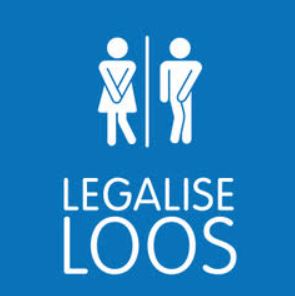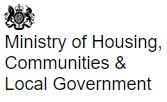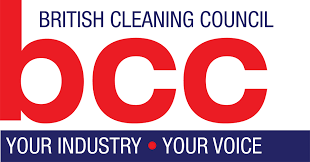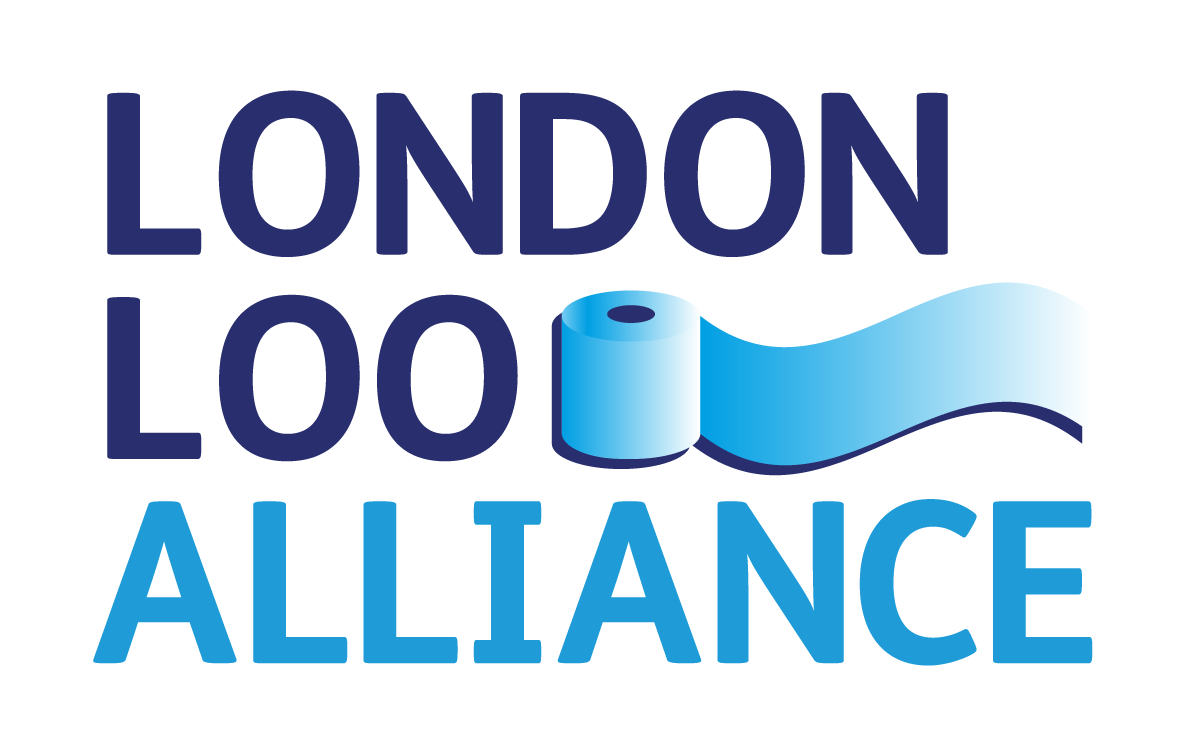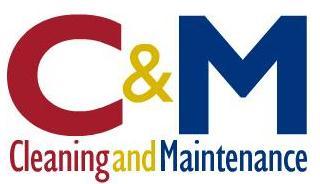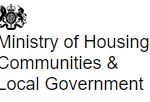Changing Places Toilet Map – Update
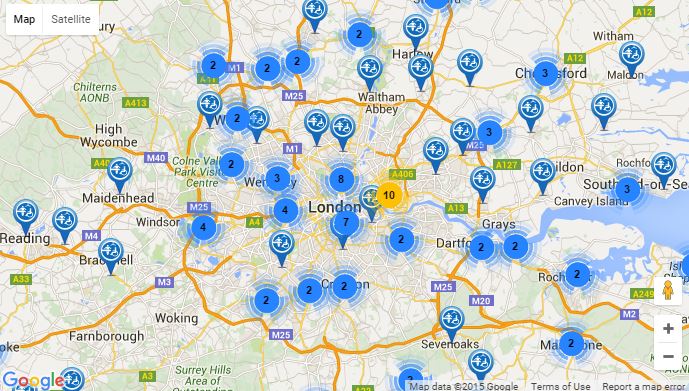
UPDATE:
Tuesday 29th October 2019
1,397 Changing Places Toilets
With nearly fourteen hundred Changing Places toilets now installed and located across the UK the system is becoming increasingly important to both carers and users searching for these types of specialised facilities.
www.uktoiletmap.org

Since November 2017 Muscular Dystrophy UK have now become Co-Chairs of the changing Places Consortium alongside Pamis. Muscular Dystrophy UK is a charity for the 70,000 people living with muscle-wasting conditions in the UK, many of whom need access to Changing Places toilets. The charity brings together people affected by more than 60 rare and very rare progressive muscle-weakening and wasting conditions. Since 1959, the charity has been supporting families living with muscle-wasting conditions. They provide vital information, advice, resources and support for people with muscle-wasting conditions, their families and the professionals who work with them.
The new WebApp will accompany the site. 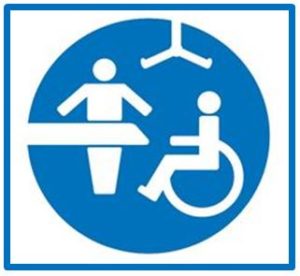 Users can now install the new WebApp on their
Users can now install the new WebApp on their
PC , Tablet or smartphone. This will be available in virtually all formats and will allow users to move directly to the map with having to follow the traditional paths. The WebApp will be totally FREE OF CHARGE for all users of the Changing Places Toilet Map. Additionally the new application will allow for Geo-Centering, which if allowed, will automatically detect your location, and centre the map on it.
Changing Places toilets were designed and created for users with Profound and Multiple Learning Disorders (PMLD). Most of these individuals need very specialized toilet equipment such as hoists, height adjustable beds, screens, sharps disposal and colostomy equipment. The toilets are of sufficient size to allow a wheelchair and up to two adults to move freely in use. Most are protected by a Radar key entry or via local control. In just a few short years the Charter Group has seen the number of CP toilets rise to 784 across the UK and at present are increasing by around 10 – 15 per m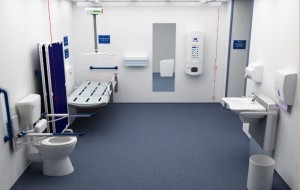 onth.
onth.
We were extremely fortunate to receive a Start-Up grant from the British Cleaning Council (BCC) to cover our initialisation costs – working through design, construct and setting the development goals. After months of extensive consideration and consultation we managed to find and appoint Velocity 42 as our programme developers and I am delighted to report that Chris and the team have completed every task on time and within an extremely tight budget, whilst even incorporating many new ideas and processes. Mencap Headquarters in London received the initial project funding from the Department of Communities and Local Government as well as the regional devolved administration in Scotland, Wales and Northern Ireland and the BTA accepted the role of project coordinator to bring this specialized map to fruition. Members of both Mencap and Pamis have been instrumental in helping to create a new mapping database and delivery system that is easy to use and also contains vital information that everyone needs to find and access to these very specialised units.
The BTA will now develop and manage the growth of the new system whilst our partners will be ensuring that the information is up-to-date and accurate. We believe this new system will provide users with a faster search; greater accuracy to the actual toilet location and opening hours. Users can register their personal details and then Save selected toilets into a Favorites folder for future recovery. Additionally the introduction of a trip planner will greatly help carers and support groups to plan for extended journeys.
The new map will produce an accurate database which will allow us to identify where provision is low or lacking and where new sites are needed. The Information Profile Sheet (IPS) for each toilet contains a Feedback Button that allows users to report to Mencap and Pamis on any remedial action or ideas for future improvement. The map will be accessible using your PC, Laptop, Tablet and various Mobile devices.
You can get immediate access via the Changing Places Website: www.changing-places.org and follow the Find a Toilet tabs. Additionally you can gain access directly from the BTA website on the Changing Places page.
Plans are well established to enhance the map and increase the information available to all users. We are actively working on plans to get news of this launch distributed to as many communities as possible. If you or your organisation is willing to help spread the word, please drop us an email to enquiries@btaloos.co.uk
The Changing Places Campaign
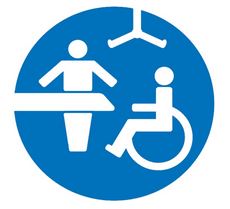 The Changing Places Consortium launched its campaign in 2006 on behalf of the 1/4 of a million people who cannot use standard accessible toilets.This includes people with profound and multiple learning disabilities, motor neurone disease, multiple sclerosis, cerebral palsy, as well as older people.
The Changing Places Consortium launched its campaign in 2006 on behalf of the 1/4 of a million people who cannot use standard accessible toilets.This includes people with profound and multiple learning disabilities, motor neurone disease, multiple sclerosis, cerebral palsy, as well as older people.
To use the toilet in safety and comfort, many people need to be able to access a Changing Places toilet which has enough space and the right equipment, including a height adjustable changing bench and a hoist.
Toilet Tourism boost for China
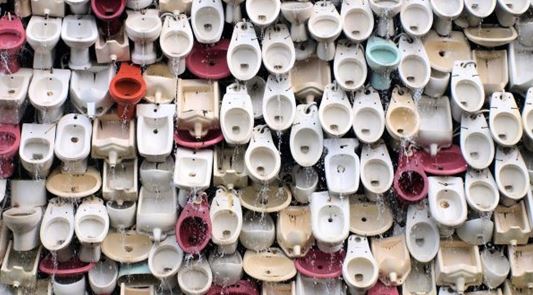
President Xi Jinping, now a bathroom aficionado after frequent visits to inspect the facilities in rural homes, has announced he’s doubling down on a campaign for a Chinese “toilet revolution” that he launched in 2015. Voicing the concerns of many a wary traveller, the communist leader said clean toilets were the cornerstone of a civilized society and would help boost travel to China as well as improving the hygiene of the masses.
China has opened about 68,000 improved bathrooms in tourist areas around the country since Xi began his campaign. Good news for places in China that have long had a notorious reputation for appalling standards of public restroom hygiene. Once deterring visitors with its doorless dry toilets, Jiuzhaigou Natural Reserve in southwestern Sichuan province has just welcomed a series of new eco-toilets around the area.
Last year, Yunnan province, which borders Myanmar, Laos and Vietnam, held a competition to select the most outstanding toilets in tourist attractions. Lijiang Old Town — previously known for toilets without individual cubicles –claimed top prize for offering facilities with odour eliminators, a motion sensor dustbin and green plants.
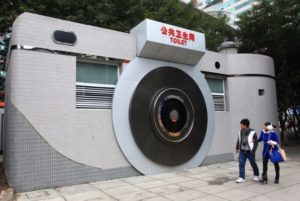
“Toilet issues are not petty matters but an important aspect of satisfying the public’s desire for a decent and healthy life,” Jack Sim, founder of global sanitation campaigner the World Toilet Organization.
Sim, aka “Mr. Toilet,” says a lack of clean facilities could harm China’s tourism industry in the long run. “China is a beautiful country with rich natural landscapes and culture and a long history,” he says. “But the lack of clean toilets made tourism impossible to be promoted as the tour agencies always get bad reports and complaints after the tour — as the stench, filth and terrible condition of many Chinese toilets horrified foreign visitors.”
China’s government says it now wants toilet improvements nationwide — from tourism spots to cities to rural backwaters. One of the biggest challenges, according to the WTO, is changing cultural attitudes.

“In many cases, money is not the problem, but it is a mindset problem,” says Bai Lin, WTO’s China project manager. “If we are able to make toilets fashionable, just like a cell phone, a TV, or a dream, we can change the toilet culture of China.”
Mumsnet Toilet Debate

A mum has sparked a fierce debate online after revealing her husband takes their daughter into the ladies’ toilets when they’re out in public. Taking to MUMSNET, the mum explained that she had told her hubby that other women would not “like” the fact that he escorted their four-year-old into the ladies’ loos. She wrote: “Help dh [darling husband] and I with a disagreement please. “When dd [darling daughter], four, needs the loo in a public place, he takes her to the ladies’ loos. “I told him that women don’t like that and he should take her to the men’s loo. Am I being unreasonable or is he?”
Needless to say, many were quick to wade into the debate – and the reaction was pretty mixed. Some agreed, saying “adult men should never be in women’s toilets” – while others sympathised with the dad’s plights and said that they could understand why he wouldn’t want to take the little girl into the men’s loos.
One wrote: “Would prefer to see a man take his daughter into ladies if no family/disabled toilet available. Don’t think any young child needs urinal or stinky cubicle exposure.”
Another added: “I can see this from both sides, it wouldn’t bother me but I know how it could upset others.
Someone else wrote: “I would have no issue with seeing a man in the ladies loo with a small child needing a wee.
“I really wouldn’t want my DD at the age of four heading into the men’s loos, they stink!”
Several people even suggested that he should take her to the disabled toilet instead – which sparked further debate about whether this would be appropriate or not.
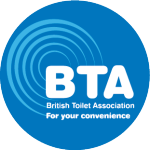
The BTA Director found himself locked in the BBC studios faced with interviews from 18 regional and national radio stations, who became embroiled in this debate. The discussions covered a range of issues from male and female using the alternative provision, right or wrong, through gender neutral toilets and to the use of accessible facilities by the general public.
Whilst there is no immediate solution, without significant investment in more toilets and better overall provision across the country, it continues to highlight the shortfall in government investment in the health and wellbeing of residents and visitors across the UK.
Sainsbury’s introduce Dementia-friendly toilets

Sainsbury’s has become the first supermarket to introduce ‘dementia-friendly’ signs in all store toilets, thanks to a campaigning pensioner who was repeatedly forced to rescue her husband – who suffered from Alzheimer’s – as he tried to find his way to and from the loos. The make-over will include large, colourful ‘way out’ signs to prevent confusion among customers who suffer with memory problems.
Many hospitals have also taken measures to become more dementia-friendly over the past few years, incorporating high-contrast measures to show where the floor joins the wall, visual breaks to mark where handrails are ending and doors painted in distinctive colour. Researchers have also identified that light plays a key role for elderly people, with estimates suggesting that people over the age of 75 need roughly twice as much light as their younger contemporaries in order to see satisfactorily.
Commenting on Sainsbury’s decision, Emma Bould – programme partnership project manager at the Alzheimer’s Society – said:
“We are delighted to see toilets with dementia friendly signage being installed nationally at all Sainsbury’s stores by March 2018. Finding and exiting toilets can often be confusing for people living with dementia, causing anxiety when they are out and about. This small but significant step will enable people with dementia to quickly find the exit, while also making the route clearer to all customers.”

HSE REVIEWS APPROACH TO TRUCKER’S TOILETS
The Road Haulage Association has expressed its relief at news that the Health and Safety Executive has reviewed it’s approach concerning access to facilities for visiting delivery drivers and has re-examined the Workplace (Health, Safety and Welfare) Regulations 1992, in particular Regs 20 and 21.
They are now in the process of updating their guidance to say that drivers must have access to welfare facilities in the premises they visit as part of their work. As this is likely to take some time, key stakeholders are being informed now.
Commenting, RHA chief executive Richard Burnett said: “If this industry is to retain a healthy, safe workforce, then drivers must have access to proper facilities. This problem for many members and their drivers is all too familiar. Visiting drivers are often refused access to toilet facilities at delivery sites – an unacceptable practice that we are determined to eradicate.”
“We have been working with campaigning group Truckers Toilets UK to improve this situation; not just at distribution centres but on the entire road network. We therefore consider it a considerable win for the entire industry that HSE have re-examined the Workplace (Health, Safety and Welfare) Regulations and are going to update their guidance to say that drivers must have access to welfare facilities in the premises they visit as part of their work. These changes won’t happen overnight but key stakeholders are being informed now.
Concluding, Richard Burnett said: “The welfare of all workers is a priority and we have consistently said that drivers should have this sort of access. We also recognise that the majority of duty holders already provide reasonable access to toilets. However, it is appalling that in the 21st century we have to report on these issues. It is now our intention to carry out a geomapping exercise to show drivers where the best facilities are in the UK.
BTA Welcomes New Public Health Act For Wales
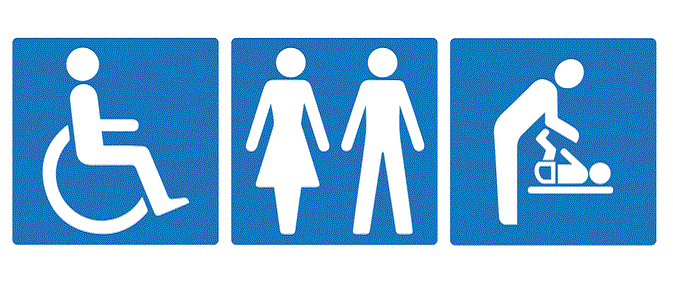
The BTA has been actively involved in the new Public Health (Wales) Bill which has now been passed by the Welsh Assembly and has achieved Royal Assent and on Monday 3rd July 2017 was passed into law as The Public Health (Wales) Act 2017 for Wales.
Our previous meetings with Rebecca Evans, the Minister for Health and senior governmental officials helped to formulate this piece of legislation — that places a duty on every local authority in Wales to create a public toilet strategy for the provision of toilets in villages, towns, cities, historical sites and ideally along major arterial routes.
The BTA is committed to working with ALL interested parties and government departments to see the inception of this significant new piece of legislation is properly and professionally installed. It is hoped that the Act will primarily address some health, social and well-being issues for a wide range of user groups, older persons, families and children, delivery drivers, tourists and residents that could be expected to visit not only their local authority area but those visiting Wales generally.
At an official sealing ceremony yesterday, the Public Health (Wales) Bill became an Act of the Assembly. A Bill receives Royal Assent when Letters Patent under the Welsh Seal signed with Her Majesty’s own hand signifying Her Assent are notified to the Clerk of the Assembly.
The First Minister of Wales Carwyn Jones applied the Welsh Seal to the Letters Patent at the sealing ceremony, which was also attended by the Minister for Social Services and Public Health.
Public Health (Wales) Bill 2016-17
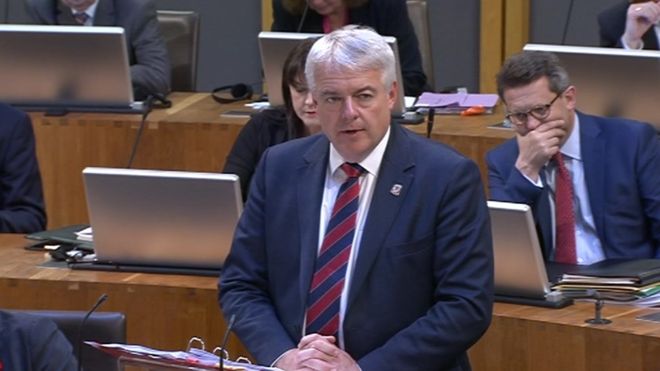

Welsh Labour promises ‘real improvements’ at assembly return to the Senedd
12 September 2016 – by David Deans BBC News
Since 2011 the assembly has had powers to make its own laws – and in the last five-year term the Welsh Government almost completed its legislative programme, producing 25 new acts with one final law failing at the last hurdle. This time around there is a shake-up over how ministers in Cardiff Bay have laid out how they will make legislation in the Senedd, with six new laws proposed for the next year.
Political commentator Daran Hill, who previously dubbed the last series of laws “mainly managerial and unambitious”, told the BBC there was a “clear aim” to keep the legislative programme as “uncontroversial as possible”. Previously, the Welsh Government laid out which laws it was going to make for the following five years from the start. But in June, shortly after the European Union referendum result, First Minister Carwyn Jones told AMs he was moving to a yearly schedule for announcing which laws he would be making. He said this was “one step in developing our practices to ensure they befit the parliamentary responsibilities of this place”.
Outlining his plans in the Senedd in June, Mr Jones said his government would bring forward six bills over the following 12 months, saying they would “deliver real improvements for the people of Wales”. There are to be two laws on taxation on two small levies which are being devolved by April 2018 – the W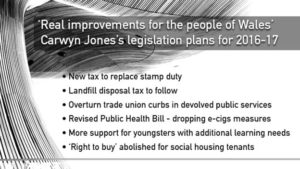 elsh versions of stamp duty land tax and landfill tax. The longstanding plan is that the Welsh Government will no longer wholly be reliant on block grant funding from the UK Treasury, although the revenue generated by these two taxes is small. Neither will keep their names. Stamp duty will be known as land transactions tax, while the landfill levy will become landfill disposals tax. Ministers have promised a bill to overturn parts of the UK government’s recent Trade Union Act as they apply to devolved services.
elsh versions of stamp duty land tax and landfill tax. The longstanding plan is that the Welsh Government will no longer wholly be reliant on block grant funding from the UK Treasury, although the revenue generated by these two taxes is small. Neither will keep their names. Stamp duty will be known as land transactions tax, while the landfill levy will become landfill disposals tax. Ministers have promised a bill to overturn parts of the UK government’s recent Trade Union Act as they apply to devolved services.
Labour had objected to the law, which sets new rules for industrial action including requiring 40% of workers eligible to vote to back strikes in key areas such as health and education, because of its impact on services that are governed from Cardiff. While the plan will pose a potential flash point with the UK Government, a letter leaked in February admitted ministers in London had a “very weak case” to impose the law in Wales. But the possible row is unlikely to translate into controversy in the Senedd, given that in the last assembly AM’s from Plaid Cymru and the Liberal Democrats were united in opposition with Labour to
the curbs.
The remaining Liberal Democrat – Kirsty Williams – is now in the cabinet, while Labour and Plaid Cymru together would give ministers the majority they need to pass the law. One of the casualties of the aftermath of the assembly election was the proposed restrictions on e-cigarettes championed by former Health Minister Mark Drakeford. The measure, commonly known as the e-cig ban, was the only example of a law which the minority Labour government failed to get through at the last hurdle. With both the Liberal Democrats and the Tories opposed, it failed after a last-minute change of heart from a small number of Plaid AM’s who were going to back the law until the now-infamous cheap date jibe by Leighton Andrews.
The Public Health Bill will be returning to the assembly, but stripped of the e-cigarette ban, leaving the government with a bill full of proposals on public toilets, sunbeds and tattooing that had not generated the opposition the e-cigarette measures did. Within the year the Welsh Government is also planning a bill to provide a new legal framework for supporting children and young people with additional learning needs, as well as a bill to abolish social housing tenants’ “right to buy”.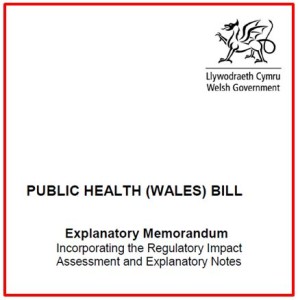
“The Welsh Government attitude to legislating in this assembly is very much based on two significant political considerations,” said Welsh political commentator Daran Hill, who heads public affairs firm Positif. “The first is the practical experience of the past when the programme became weighed down, and it has therefore indicated a shorter list of laws for this assembly. The second factor is the lack of an outright majority on the floor of the assembly to pass any law at all. This means there’s an added incentive to keep to a minimum the number of laws taken to a vote on the floor of the assembly.”
He said the “clear aim is to keep the programme as uncontroversial as possible in order to get consensus or at least a simple majority of votes whenever a piece of law has to be taken through”. The Welsh Government said it did not plan to respond directly to the comments, but pointed to the bill for the land transaction tax as being “the longest and most complex piece of legislation the National Assembly will consider to date”
The BTA has been working with departments and local authorities to embrace this initiative and we will remain fully supportive of any opportunity to advise or support the inception of these toilet strategies.
10th Anniversary Celebrations

2006 – 2016
CHANGING PLACES CONSORTIUM CELEBRATE 10 YEARS OF CAMPAIGNING ACROSS THE UK
ITS ALL ABOUT #incLOOsion
Since 2006, the Changing Places Consortium has been campaigning for fully accessible toilets to support the rights of people with profound and multiple learning, and/or other physical disabilities, to access their community. Standard disabled toilets are not accessible for disabled people and can lead to unhygienic and stressful trips out for disabled people and their families. Being able to go to the toilet is a basic civil right, however every day thousands of people with a disability face the choice of being changed on the floor of an unhygienic public toilet, remaining in soiled clothing or not going out at all.
A Changing Places toilet is a fully accessible toilet with a height-adjustable changing bench, an overhead track or mobile hoist; a peninsular toilet and enough space for up to two carers. The Changing Places campaign has led to the installation of over 840 Changing Places toilets across the UK.
CHANGING PLACES AWARENESS DAY – 19th JULY
 Raymond Martin joined Mike Le-Surf from Mencap on a run across London to highlight the need for more Changing Places in the capital. They were supported by campaigners from Mencap and Generate who met up with MP Jack Dromey in the Houses of Parliament at the end of the run.
Raymond Martin joined Mike Le-Surf from Mencap on a run across London to highlight the need for more Changing Places in the capital. They were supported by campaigners from Mencap and Generate who met up with MP Jack Dromey in the Houses of Parliament at the end of the run.
A new digital map has recently been launched to help people locate their nearest “Changing Places” toilets. “How far would you go?” Sign up on the new map webpage and find your nearest Changing Places toilet by visiting www.changingplacesmap.org.uk Find out how far you would have to go to find your nearest Changing Places toilet to highlight how disabled people can feel excluded from their local communities without these facilities. Use social media to let people know #howfarwouldyougo
Rossanna Trudgian, co-chair of the Changing Places Consortium said: “It is fantastic to see more and more Changing Places toilets being installed across the UK as we celebrate 10 years of campaigning. However, there are still many large public places across the UK that lack Changing Places toilets and therefore deny people’s rights. With the help of our fantastic campaigners, and our campaign sponsors Aveso, we will continue to fight to make sure every single one of the ¼ million people in the UK who require a Changing Places toilet, can access one.”

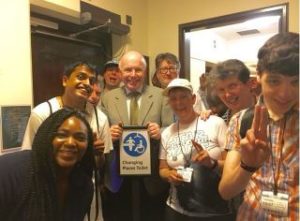
For information and advice on Changing Places
Michael le Surf
Mencap
Telephone: Direct on 020 7696 6019
Website: www.mencap.org.uk.
E-mail: changingplaces@mencap.org.uk
CHURCHES and TOILETS

An opinion poll into public attitudes to church buildings
A recent poll shows that the public welcomed Government funding for church heritage and revealed what would get them to return to visiting churches, chapels and meeting houses

60 % of British adults back the Government providing financial support for churches, chapels and meeting houses in order to protect their heritage and history for future generations, according to the findings of a new opinion poll, commissioned by the National Churches Trust. The overwhelming majority of British adults (84%) think that the UK’s churches, chapels and meeting houses are an important part of the UK’s heritage and history, according to the findings of the ComRes poll, which interviewed 2,038 GB adults online between the 16th and 17th December 2015.
A further 83% of British adults think that the UK’s churches and chapels and meeting houses play an important role for society. When people were asked what would most encourage them to visit churches, the top five responses were:
- A friendly welcome
-
The provision of toilets
- A Café or refreshment area,
- Comfortable seating
- Access to useful visitor information
The poll found that 57% of British adults said that they had visited a church in the past year for religious services, non-religious activities or as a visitor or tourist.
A few of the Key findings include:
- More than four in five Britons (84%) agree that the UK’s churches, chapels and meeting houses are an important part of the UK’s heritage and history.
- The majority of British adults (83%) agree that churches, chapels and meeting houses are important for society as they provide a space in which community activities can take place, as well as worship. But what would encourage more of them to visit a one of these places
-
34% said the provision of toilets
- 32% said that a Café or refreshment area
- 29% said that comfortable seating and
- 28% said that access to useful visitor information would encourage them to visit
- Younger adults (those aged 18-34) say that Wi-Fi would encourage them to visit
- 46% of British adults agreed that it is difficult to find useful visitor information, such
as directions, opening hours and details of things to see and do.
Claire Walker, Chief Executive of the National Churches Trust said:
“This poll shows that there is overwhelming public support for church buildings, despite the decline in the numbers of people in Britain identifying themselves as Christian in recent years.” The British public thinks that churches, chapels and meeting houses are an important part of the UK’s heritage and history and that they are also important for society as they provide a space in which community activities can take place, as well as worship. Looking to the future, our poll shows how even more people could be encouraged to visit churches. That includes making sure that visitors receive a friendly welcome and providing better facilities such as toilets, a Café or refreshment area and Wi-Fi was seen as particularly important by young adults. “
“However, the huge support for churches demonstrated by this poll will, I hope, encourage local communities and church authorities to keep their buildings open & in good repair and with the right facilities to allow greater community use for many years to come.”
Churches, chapels and meeting houses can continue to play a vital role in the life and well-being of the nation!
Chinese Toilets with Wi-Fi
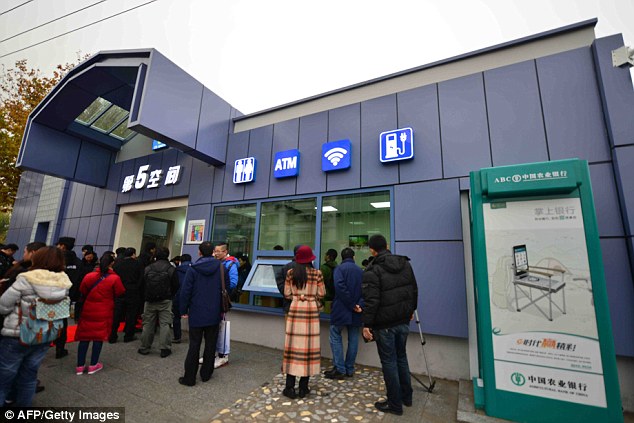
Wi-Fi, ATMs and turbo-flush toilets:
China reveals its latest high-tech restrooms which could soon become commonplace
By Cheyenne MacDonald and Tracy You for Mail-on-Line
China is working hard to overhaul its public sanitation system, and it’s updating toilets with Wi-Fi, television screens, and even ATM machines. People don’t usually like to linger in public restrooms; in China, with the squat toilets, shortage of toilet paper, and sometimes unsanitary conditions, the bathroom experience can be daunting. Now, high-tech restrooms could turn public toilet-use into a more enjoyable situation. High-tech toilet developments could give Chinese bathrooms a new reputation. China is working hard to overhaul its public sanitation system, and it’s updating toilets with Wi-Fi, television screens, and even ATM machines. 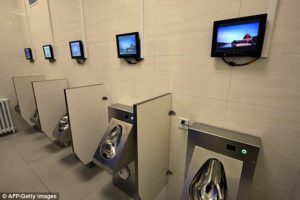 According to The New York Times, China will be renovating or constructing 57,000 public bathrooms, and some of them will be equipped with high-tech gadgets. In Fangshan, a new public facility has turbo-flushing powers in the toilets, along with wireless internet and TV screens in the stalls. The windows are lined with aloe vera plants, and a cello soundtrack plays in the background. The first new-generation bathroom opened to the public in November, in front of the government offices of the Fangshan District in south-west Beijing.It will even conserve water, recycling sink water to flush toilets. The event was timed to celebrate the ‘World’s Toilet Day,’ which falls on the same day, and is a part of the first ‘China Toilet Revolution Propaganda Day. For many years, China has suffered from sanitary issues in its public bathrooms. In poorer communities, 14 million people must defecate in the open. ‘Change is certainly needed,’ Lu Suisheng told NYT. ‘In some Chinese toilets, people need to step on bricks to avoid stepping on dirty areas. How can you use toilets like that?’
According to The New York Times, China will be renovating or constructing 57,000 public bathrooms, and some of them will be equipped with high-tech gadgets. In Fangshan, a new public facility has turbo-flushing powers in the toilets, along with wireless internet and TV screens in the stalls. The windows are lined with aloe vera plants, and a cello soundtrack plays in the background. The first new-generation bathroom opened to the public in November, in front of the government offices of the Fangshan District in south-west Beijing.It will even conserve water, recycling sink water to flush toilets. The event was timed to celebrate the ‘World’s Toilet Day,’ which falls on the same day, and is a part of the first ‘China Toilet Revolution Propaganda Day. For many years, China has suffered from sanitary issues in its public bathrooms. In poorer communities, 14 million people must defecate in the open. ‘Change is certainly needed,’ Lu Suisheng told NYT. ‘In some Chinese toilets, people need to step on bricks to avoid stepping on dirty areas. How can you use toilets like that?’
 According to the noticeboard displayed outside of the building, the spacious beige-tiled restroom has 11 different sections, including male toilets, female toilets, unisex toilets, accessible toilets, baby-changing facilities, an e-commerce area and an ATM room. The entire area has available Wi-Fi and there are vending machines selling different type of soft drinks. Each toilet or urinal is equipped with a flat-screen TV set nearby for entertaining the user. In Fangshan, a new public facility named ‘The Fifth Space,’ has turbo-flushing powers in the toilets, along with wireless internet and TV screens in the stalls. The windows are lined with aloe vera plants, and a cello soundtrack plays in the background.
According to the noticeboard displayed outside of the building, the spacious beige-tiled restroom has 11 different sections, including male toilets, female toilets, unisex toilets, accessible toilets, baby-changing facilities, an e-commerce area and an ATM room. The entire area has available Wi-Fi and there are vending machines selling different type of soft drinks. Each toilet or urinal is equipped with a flat-screen TV set nearby for entertaining the user. In Fangshan, a new public facility named ‘The Fifth Space,’ has turbo-flushing powers in the toilets, along with wireless internet and TV screens in the stalls. The windows are lined with aloe vera plants, and a cello soundtrack plays in the background.
The efforts to clean up the public restroom are received well by many, but some residents argue that the technological additions are a waste of money that could be put to better use elsewhere. Others argue that these new gadgets in the restrooms will lead people to spend unnecessary time on the toilet and force others to wait.
Toilet users can also buy drinks from the vending machines (left) and pay their utility bills using a multi-purpose phone. The efforts to clean up the public restroom are received well by many.
 Charging stations have been installed outside the building so that customers can leave their electric bikes to be powered while answering the call of nature. It seems designers hope the new facility will be a meeting point for residents away from home and work. A spokesman from Beijing Environmental Sanitation Engineering Group told the People’s Daily Online that they hope the new public restroom will become ‘the fifth space’ besides the family space, work space, leisure space and cyber space. Hence, the sign of the restroom will be changed from ‘WC’, a traditional sign for public toilets in China, to the number ‘5.’
Charging stations have been installed outside the building so that customers can leave their electric bikes to be powered while answering the call of nature. It seems designers hope the new facility will be a meeting point for residents away from home and work. A spokesman from Beijing Environmental Sanitation Engineering Group told the People’s Daily Online that they hope the new public restroom will become ‘the fifth space’ besides the family space, work space, leisure space and cyber space. Hence, the sign of the restroom will be changed from ‘WC’, a traditional sign for public toilets in China, to the number ‘5.’
And even all the functions above are not enough in Beijing’s ambition toilet revolution. The spokesman said: ‘We will learn Japan’s experience to provide basic physical examination in the restrooms, such as blood pressure, heart rate and urinalysis.’ More of these ‘The Fifth Space’ toilets are due to open on the outskirts of Beijing soon – in Fangshan, Tongzhou, Shunyi and Pingu districts – as well as other Chinese cities, including Guiyang, Haikou, Kunming and Zhangjiakou.
THE PUBLIC SANITATION PROBLEM
- The new bathrooms are cleaner, but some argue they are a waste of money
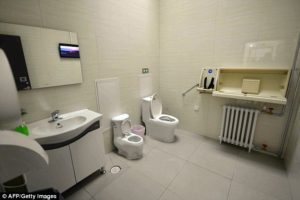 China will be renovating or constructing 57,000 public bathrooms, and some of them will be equipped with high-tech gadgets. Toilets in China, often squat toilets or concrete pits, have remained unchanged for generations. Between 1990 and 2010, China updated facilities for 593 million people, but the changes did not extend to everyone. For many years, China has suffered from sanitary issues in its public bathrooms. In poorer communities, 14 million people must defecate in the open. Many people are now arguing that unnecessary additions, like TVs, are a waste of money that could be used instead to update the facilities in poor areas.
China will be renovating or constructing 57,000 public bathrooms, and some of them will be equipped with high-tech gadgets. Toilets in China, often squat toilets or concrete pits, have remained unchanged for generations. Between 1990 and 2010, China updated facilities for 593 million people, but the changes did not extend to everyone. For many years, China has suffered from sanitary issues in its public bathrooms. In poorer communities, 14 million people must defecate in the open. Many people are now arguing that unnecessary additions, like TVs, are a waste of money that could be used instead to update the facilities in poor areas.






